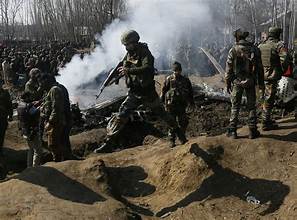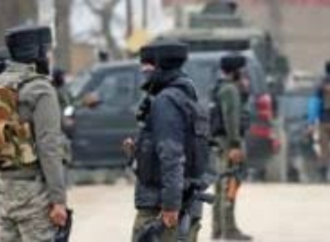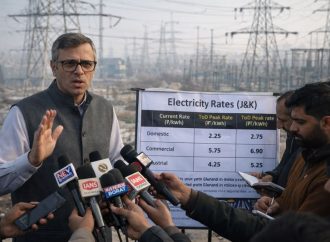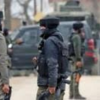The recent terror attack in Pahalgam, which claimed the lives of 26 people, has sent shockwaves through eastern India’s travel sector. Tour operators are reporting a massive spike in cancellations for scheduled tours to Jammu and Kashmir (J&K). Industry leaders, particularly in Kolkata—a major hub for J&K-bound travel—express concerns that this incident could undo years
The recent terror attack in Pahalgam, which claimed the lives of 26 people, has sent shockwaves through eastern India’s travel sector. Tour operators are reporting a massive spike in cancellations for scheduled tours to Jammu and Kashmir (J&K). Industry leaders, particularly in Kolkata—a major hub for J&K-bound travel—express concerns that this incident could undo years of tourism recovery following a prolonged period of militancy in the region.
Targeting Tourists: A New and Alarming Trend
This attack marks a troubling first in recent memory—tourists were specifically targeted, triggering heightened fears for safety among travelers. Bilolaksha Das, Chairman of the Eastern Chapter of the Travel Agents Federation of India, expressed his shock, emphasizing that while Kashmir has experienced terrorism in the past, this attack specifically on tourists could have far-reaching consequences for the entire tourism industry.
“This is madness,” Das remarked. “Never before have tourists been identified and killed. This could cause the entire tourism ecosystem in Kashmir and its supporting sectors across India to collapse.”
Widespread Cancellations and the Bleak Outlook for the Tourist Season
Since the attack, tour operators in eastern India have been flooded with requests to cancel or postpone tours. Many bookings for the upcoming tourist season, particularly between February and October, including the peak Durga Puja vacation period, are being scrapped. Das revealed that seven out of ten bookings for Kashmir were from domestic travelers in the past few years, making the region a key destination during summer holidays.
Impact on Domestic and Foreign Tourists
Despite Jammu and Kashmir recording historic tourism numbers in 2024, the recent attack is casting a long shadow over the region’s tourism prospects. The state had seen a 10% rise in footfall compared to the previous year, with more than 2.35 crore tourists visiting in 2024. However, with the attack specifically targeting tourists, many fear a drastic decline in tourism.
Shamim Shah, Chairman of the J&K Travel Agents Federation, acknowledged the gravity of the situation, asserting that while it is premature to determine the extent of cancellations, the fear among tourists is undeniable. He stressed the importance of reassuring tourists and maintaining solidarity in the face of such adversity.
Economic Impact and Tourism Sector at Risk
The tourism sector in Kashmir is a vital economic lifeline, involving various stakeholders such as hoteliers, houseboat owners, drivers, guides, and local artisans. The potential loss of business following this attack could jeopardize the livelihoods of thousands of individuals. Anil Punjabi, National Committee Member of the Travel Agents Federation of India, noted that 30% of Kashmir’s tourist inflow comes from eastern India, particularly West Bengal, and warned of severe financial repercussions for tour operators, with hundreds of bookings already in jeopardy.
“Tourism has been a critical element in Kashmir’s economic recovery. This incident could undo years of confidence-building,” Punjabi added.
Kolkata and Siliguri: Epicenters of the Impact
Kolkata and Siliguri, major gateways for Kashmir-bound tourists, are experiencing widespread cancellations. Local agents reported a sharp rise in cancellation requests within hours of the attack. Mrinmoy Chandra, a Kolkata-based tour operator, noted that last year, the period from April to July was the peak tourist season, with hotels fully booked. He expressed concern that the incident could undermine the foreign tourism market in Kashmir as well, sending a negative message to international visitors.
Government’s Challenge: Restoring Confidence
The Jammu and Kashmir government had made significant strides in recent years to project the region as a safe and attractive destination. This included hosting the third G20 Tourism Working Group meeting in Srinagar in May 2023, which saw the participation of over 60 international delegates. However, the recent terror attack has cast doubt on the region’s ability to maintain the positive momentum it had worked hard to build.
The Future of Kashmir’s Tourism: A Struggle for Survival
The attack has left the Kashmir tourism ecosystem in a vulnerable state. Despite heightened security measures in major tourist hubs, the long-term impact on tourism may already be irreversible. Operators and stakeholders are bracing for a lean season ahead, with financial losses expected to be substantial.
As industry leaders continue to grapple with the aftermath, tour operators and tourism professionals are calling for a united effort to restore tourist confidence and mitigate the economic impact of the attack. For now, the region’s tourism industry faces an uncertain future, and the recovery of the 2025 tourist season remains a significant challenge.






















Leave a Comment
Your email address will not be published. Required fields are marked with *